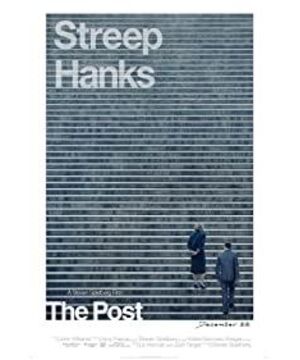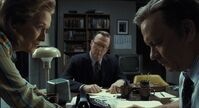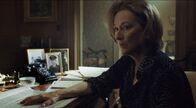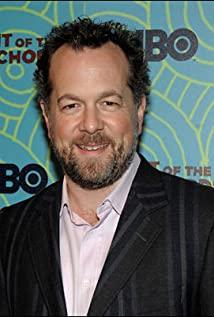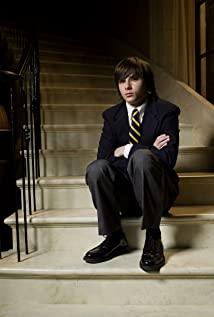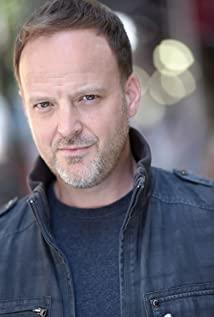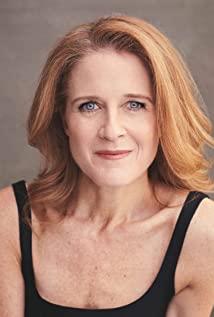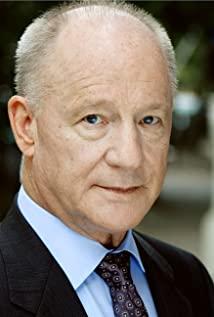Two years later, I came to live in the Washington area and naturally became a reader of the Post, as a local resident, and as a journalist. I read the newspaper with a little sense of fortune. There is no credible history of journalism that can omit the special contribution of the Post to pull the president down. This newspaper is not the best in the United States, because the New York Times is in the front, but it is also a good choice to read the second-ranked newspaper every day. When the media landscape changed radically and newspaper subscribers decreased year by year, I still did not give up. I changed my mind only a few weeks ago, because the newspapers at home are often piled up to two feet high. I didn't give up reading newspapers, I just used my mobile phone or iPad to browse more. I called the newspaper distribution department and wanted to cancel the print subscription and only keep the electronic version.
The phone said, "You only subscribe to the Sunday print edition now, and we will give you the Monday to Saturday newspaper for free during the promotional period. You also have the electronic edition at a price of $10.60 per 4 weeks. If you only order the electronic edition, $15 every 4 weeks."
I asked, "How long will the free newspapers from Monday to Saturday last?"
"There is no deadline at this time, and it will probably continue."
I chose to continue subscribing.
The newspaper industry is no longer in the golden age. As a print subscriber, the post-60s like me belong to the youngest group of adherents. I have only seen a handful of post-90s. Among them, no matter whether they are American or Chinese, the number of people who subscribe to newspapers is zero. Thanks to Spielberg, watching his film "The Post" (The Post) is like having the opportunity to relive the fullness, fullness and mellowness of vinyl records after a long time in the world of mp3. Movies cannot bring the number of subscribers of the Post back to its heyday, but at least it can make everyone realize that no matter how the style and medium evolve, journalism has been, is still, and will still be an important pillar of the operation of civil society.
The script of the movie "Washington Post" uses Catherine Graham's "Personal History" as the main reference. An important turning point in her life is that after the death of her husband Philip, she turned from a housewife to the head of the Post. However, the "housewife" as an identity tag actually covers an extremely diverse group, and Catherine may not be the most typical representative of it. Her Jewish father, Eugene Meyer, became a financier because of his good business skills, and then actively engaged in public service. His political history includes serving as the chairman of the Federal Reserve and the first president of the World Bank. There is a school named after him in the capital Washington, and the conference hall of the Freer Art Museum is also called Meyer Auditorium.
Katherine Graham first studied at Vassar, a well-known liberal arts college, and then transferred to the University of Chicago. After graduation, she went to San Francisco to work as a reporter, and then transferred to the Washington Post where her father was the boss. Two years later, she married Philip Graham, a young talent who graduated from Harvard Law School and Felix of the Federal Supreme Court. A disciple of Frankfurter and the successor to his father's career.
Catherine did not complain about her father's choice to pass on her son-in-law or not to her daughter. In her autobiography, she clearly expressed her feelings at the time, not disappointment, but happiness. The idea of running the post never appeared in her mind. Judging from the historical background of American society in the mid-20th century, it is extremely rare for women to hold public positions or lead companies. In the movie, Catherine, played by Streep, has been the post boss for many years. Even so, when the board of directors discussed major issues such as company listings, Catherine was still the only woman in the large room decorated with wood panels. This situation is slightly better than that of the Holy See, where the cardinals of the Vatican were still only present at the meeting. The proportion of women closest to Catherine’s boardroom meeting is the Politburo meeting of the Party Central Committee in Beijing.
Philip and Catherine have maintained close contact with the top political circles in the United States, and the social gatherings held by the two in the expensive Georgetown home in Washington are legendary. After 1949, the Chinese leadership has made every effort to devote itself to major national events, including launching various sports. There are few records of cultural and entertainment activities that I can read. If you have to find a counterpart to the Georgetown Cocktail Party in China, your vision should not be limited to the air force compound where Wu Faxian is commander. The only thing that is slightly closer is probably the dance party in Zhongnanhai. In 1963, after Philip shot and committed suicide due to alcoholism and mental health problems, Catherine officially left her home to take charge of the Post. However, her Georgetown home still continued its status as the hub of the Washington social circle. There are several recurrences of such scenes in the movie. . Catherine's friends in Washington are eclectic, regardless of party affiliation, including the president, she can omit the politeness and call them by their first names, such as Jack Jackie, our name is President Kennedy and his wife; Lyndon, our name is President Johnson; Jimmy, Our name is President Carter; Henry, we respectfully call Dr. Kissinger; and Nancy is Mrs. Reagan.
The question is, when you become friends with many politicians, how can the newspaper you own play a supervisory role? How do you make a choice when the newspaper under your name discovers that your friends in the government have made mistakes in performing their duties? At a dinner party at Catherine’s home, she had such a conversation with Ben Bradley, the post editor who she hired for her insight, and Tom Hanks played the most attractive newspaperman in the history of American journalism.
Bradley (slightly ironic): The only people Kennedy and Johnson are willing to associate with are you and your husband, and you own the newspaper. I guess this is how things work. Political figures and the media trust each other. Everyone joins in dinner parties and amuses each other over cocktails. At this time, the situation in Vietnam continues to escalate?
Catherine: What are you talking about? I did not protect Johnson.
Bradley: Yes, no, but his Secretary of Defense McNamara is on your balcony. Isn’t he the one authorized to assess the situation in Vietnam?
Catherine: I did not protect him, I did not protect any of them. I only protect our newspaper.
President Kennedy has a normal personal relationship with Vice President Johnson. His younger brothers Robert Kennedy and Johnson, who are attorney generals, are like political enemies. Philip Graham and his wife, Catherine, had a good relationship with both sides at the same time. They obviously have excellent mediation functions. According to the narrative of "Personal History," Philip's persuasion played a key role in the 1960 election that Johnson was willing to give up his position as the leader of the majority party in the Senate and assist Kennedy in the election as his deputy.
The movie shows in 1971, the third year Nixon entered the White House. Before Philip first died, then the Kennedy brothers were assassinated one after another, Johnson gave up the chance to stand for re-election in 1968 and returned to Texas ranch to enjoy his retirement. Only the former Secretary of Defense and current World Bank President McNamara remained in Washington. He was one of the main designers of American intervention in Vietnam and an important brewer and executor of the tragedy of the Vietnam War. McNamara organized experts and scholars to study the role of the United States in Vietnam in the later period when McNamara governed the Pentagon, from 1945 to 1967. This so-called "Pentagon document" with a total of 7,000 pages found that the United States had long realized that it could not win the Vietnam War, but the four presidents since Truman had not been completely honest on this major issue. Kennedy and Johnson in particular misled the public. Possible.
McNamara has appeared in movies many times. He and Catherine have been close friends for many years and are also senior consultants. He has been a director of The Washington Post Company. The group photo of the two in the movie is placed where Catherine's eyes can be seen. Obviously, McNamara has never illegally leaked any secrets related to the Pentagon documents to Catherine. He only briefly informed the day before the New York Times was about to publish a series of reports that important news that would damage his image would appear tomorrow morning.
The New York Times grabbed a major report, but the Washington Post knew nothing about it. Bradley’s frustration might be so deep that it would be close to the British general Montgomery: Why was the Soviet Red Army led by Zhukov to conquer Berlin, not the Allies? Is it the Royal Army, Navy and Air Force under my leadership? Bradley went to Catherine's house and asked why you and McNamara are so close, but we don't get any inside information? Catherine responded that, first of all, I do not interfere in the business of the newspaper, and secondly, I cannot let my friends leak encrypted files at the risk of crime.
The collaboration between Catherine and Bradley is a model of the relationship between boss and employee. Before the two had a discussion at the table, Nixon was dissatisfied with the Post’s report on the president’s family. In retaliation, the Post reporter may not be able to interview the president’s daughter’s upcoming wedding. Catherine suggested at the table that perhaps the wording of the report could be adjusted, or that a new reporter might be considered. Bradley replied "keep your fingers out of my eye", don't point fingers, even the boss can't interfere in the news business. At this time, it is the editor who adheres to the principle and the boss who gives in. Under the institutional framework of the First Amendment to the United States Constitution that protects freedom of speech, the professional standards of journalism also require careful care and cultivation of details by practitioners to establish and maintain. Even so, the practice of journalism is still far from perfect.
The next one who strictly followed the rules was Catherine, who refused Bradley's request and would not use personal friendship for the report. But the instinct to chase important news drove Bradley to move on. He said, "I know your relationship with McNamara, and at the same time, don’t you think that you are also responsible for your own newspapers and the public? "
Catherine reminded Bradley, "When Kennedy was president, I never saw you put pressure on him as a reporter on anything. Where is your sense of responsibility?"
Bradley argued that when I needed it, of course I used force and never backed up, "I never pulled any punches."
Catherine did not agree. You Bradley has received so many invitations from Kennedy, how could it be possible that none of them have ever been. Give in? (Hard to believe you would have gotten all of those invitations if you didn't pull a few punches.) In real life, Bradley and Kennedy have known each other for many years and are intimate. The two are Harvard classmates and neighbors in the Georgetown community. After Kennedy entered the White House, Bradley had the opportunity to have a meal with the president once a week. He was also a frequent visitor to Camp David, but he had neither written about drunken parties nor reported a series of scandals. Ideally, there should be a clear separation between personal friendship and professional work, but in reality it is not easy to do.
Every conversation between Catherine and Bradley in the movie is worth pondering by the audience, especially the newsman, and it doesn't matter whether it is true or fictional. Bradley obtained the Pentagon document and decided to exchange views with Catherine before publishing. If it is handled carelessly, the newspaper may go bankrupt and the two may go to jail. Bradley's night visit to Catherine certainly has personal reasons, because reports will show that McNamara misled and even deceived the American public, and the deep friendship between McNamara has never been a secret.
With one minute of screen time, Bradley reflected on the past as deeply as possible. He regretted the choice he was forced to make between personal friendship and professional responsibility. After Kennedy was assassinated, Bradley went to the Naval Hospital on the outskirts of Washington to welcome the remains. Mrs. Kennedy Jacqueline was still wearing a pink suit at this time, and the blood stains on President Dallas were clearly visible when he was shot. At that time, only a few of Kennedy's loved ones and friends were present. Jacqueline asked Bradley to keep it secret, not to include what he saw in the report, any detail, any conversation. At the cost of giving up recording history, Bradley kept his promise. He regarded the Kennedys as friends, not the source. But now he realizes that he was wrong. As a reporter, the professional responsibility of reporting the truth may be more important. (The way they lied. They way they lied. Those days have to be over.) When facing the Pentagon documents, the media people's choices should be different. Relatively speaking, the public responsibility at this time may be far more important than personal friendship. If it loses its credibility, the value of a newspaper will cease to exist. Bradley and Catherine reached a consensus. When the government lied, if the media does not hold those in power accountable, who is capable? The media needs to play the role of a power regulator.
When her own newspaper is about to complete its public mission by revealing the truth, all Catherine can do privately is to inform her friends in advance. At the neighbor of McNamara’s house, Catherine questioned, you know that you can’t win, why do you want to continue the Vietnam War and cause thousands of young people to be forced into the battlefield? My own children have gone home, but there are so many other children who still risk their lives to fight.
McNamara’s explanation in the movie was slightly reluctant. He believed that the government’s decision was intended to force Ho Chi Minh back to the negotiating table. McNamara does not deny the public's right to know about national affairs. He said that the Pentagon document does reveal the truth, but it should only be published when people can read it from a proper angle. At the moment, American soldiers are still bleeding and dying on the battlefield in Vietnam. , It is obviously inappropriate to make the document public. Catherine has made up her mind. In order to reduce the negative impact, she emphasized that she has never forgotten all the help provided by the other party as a close friend and most trusted advisor at every important juncture, but this conversation is only seeking your advice, not you Approved.
The image of McNamara in the movie is negative, and his actual life is more complicated and subtle. Catherine mentioned in her memoir "Personal History" that when the New York Times faced pressure from the Nixon administration, McNamara encouraged them to continue to publish the Pentagon documents and helped them choose more cautious language, trying to reduce the possibility of future lawsuits. The trouble encountered. McNamara's last name McNamara is mentioned 19 times in "Personal History", plus his name Robert Robert or Bob Bob, his frequency of appearance has increased several times, and the friendship between the two is not particularly affected by the Pentagon document. And the impact of subsequent litigation cases. Catherine's funeral was held in Washington National Cathedral in 2001. The attendees included celebrities such as former President Clinton and his wife, Vice President Cheney and his wife and Kissinger. The 85-year-old McNamara was responsible for carrying the coffin together with several others.
View more about The Post reviews


